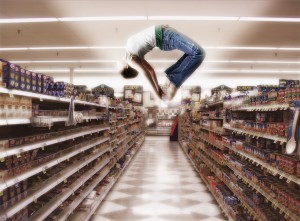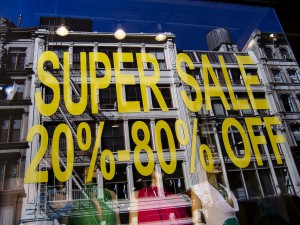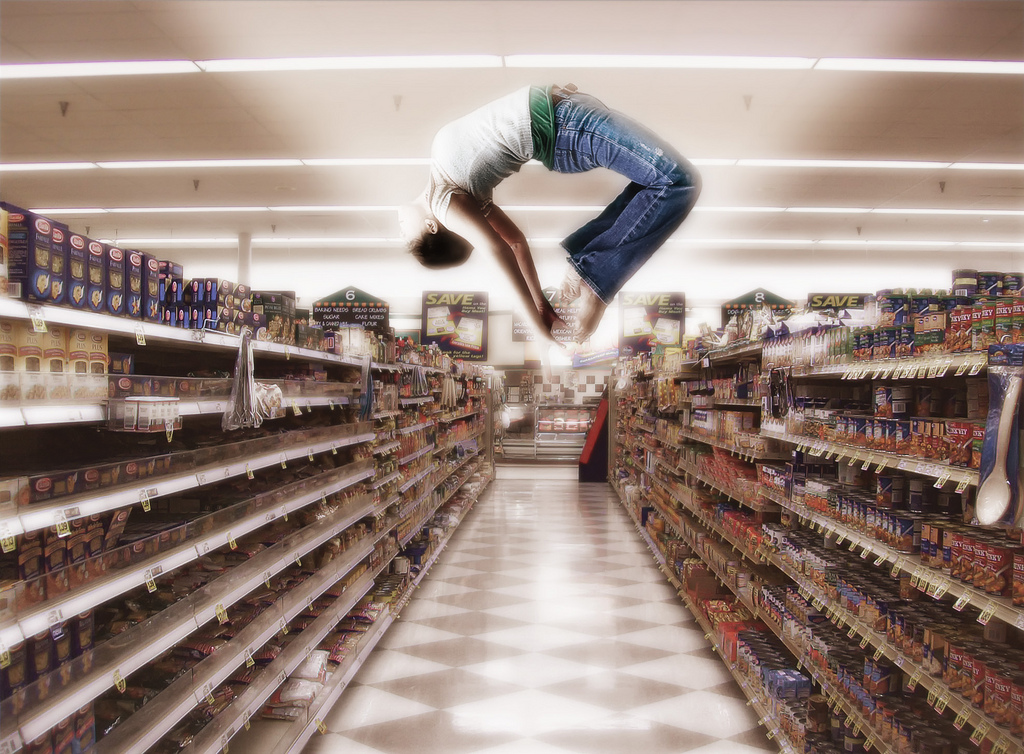Standing in front of my closet this morning, choosing an outfit for the day, I caught myself thinking “I have got nothing to wear”. Ironically, I had just looked through a selection of shirts, skirts, pants and dresses – there were plenty of eligible outfits – I merely deemed them unsuitable for the occasion. So I did have something to wear, I just wasn’t pleased with the choices – there was nothing new about my clothes. As a woman, I believe this situation is not that rare of an occurrence. However, the fact that I felt the urge to update my already well-stocked wardrobe, got me thinking – why do I feel that I need more, when I already have so much?
In today’s society it can be difficult to distinguish between one’s wants and needs. At times it may even feel as though it is impossible to control the desire to want more. No wonder, with TV shows, social media, newspapers and even toilet stall doors shoving advertisements in our faces every day – more or less subliminally – cajoling us to shop, starting the vicious circle of consumerism.
As early as the 17th century, the consumerist way of life started to implement itself into our society. English historian Keith Thomas describes it as “the gradual emergence of a new ideology, accepting the pursuit of consumer goods as a valid object of human endeavour” increasing the living standards of all classes and providing opportunities previously limited by social ranking. Connecting satisfaction, well-being and, most of all, status to one’s possessions became a way of measuring life’s worth. This doctrine was taken further by economists after the World Wars, especially by Victor Lebow, who in 1955 demanded we seek happiness in consumption, making it our way of life. Though this doctrine might have been beneficial for the economy then, it developed a momentum of its own, with severe consequences for our lives today.
Adapted by our governments and implemented by the media, our society still revolves around consumption, making us believe that it will lead to fulfilment. Consequently, not only have we made consumerism a way of life, we also make our happiness dependent on it – measuring our worth by how much we own compared to others. However, this leaves us eternally unsatisfied – and envious of others who seemingly have more. Despite feeling happier after a purchase, the sensation wears off quickly, shifting our focus back to the things we still do not have. Philosopher Henry David Thoreau once said that “it is the preoccupation with possessions that prevents us from living freely and nobly”. Meaning that what is promised to us through consumerism – happiness and satisfaction – actually keeps us from achieving just that.
 The dilemma with the never-ending desire to buy new things is that it is not sustainable; the one thing that the economists failed to tell us. Producing more stuff also means creating more waste – naturally, this cannot go on forever on a finite planet – thus having a negative impact on our planet. Even though, we should be aware of this, living in the 21st century, consumerism still has a tight grip on us. Yet, studies have shown, organising our lives around how much we own, actually, affects our wellbeing in a bad way, leading to depression and anxiety more often than satisfaction and happiness. In fact, consumerism has an impact on our social life and our environment as materialistic values shift our focus from the things that actually matter.
The dilemma with the never-ending desire to buy new things is that it is not sustainable; the one thing that the economists failed to tell us. Producing more stuff also means creating more waste – naturally, this cannot go on forever on a finite planet – thus having a negative impact on our planet. Even though, we should be aware of this, living in the 21st century, consumerism still has a tight grip on us. Yet, studies have shown, organising our lives around how much we own, actually, affects our wellbeing in a bad way, leading to depression and anxiety more often than satisfaction and happiness. In fact, consumerism has an impact on our social life and our environment as materialistic values shift our focus from the things that actually matter.
Since not consuming anything is close to impossible in today’s world, the situation may seem helpless. I find myself in a constant struggle of valuing what I have, thus resisting the urge to shop but wanting to buy all the things society suggests I should own. Luckily, there are certain things we can do to move towards a more conscious type of consumerism and with that a more sustainable way of life. One of the causes of consumerist behaviour is insecurity; we buy things to make us feel better about ourselves. Therefore, finding alternative ways to feel better and more secure, such as spending time with friends and family, can help us realise that there is a lot to be thankful for. Another thing we can do is to minimise media exposure; installing ad blocks and muting commercials can be a start to this, with the upside of less annoying ads and pop-ups when streaming movies.
However, to foster a healthier, more sustainable lifestyle on a bigger scale, we need to start pushing for broader societal change and the implementation of intrinsic values in politics. Ecological Economist, William Rees, said that “we need to learn to live within the means of nature”, meaning that we should share and redistribute our wealth. This may seem like a difficult task – still, training ourselves in awareness is  something we can do as individuals to contribute to the big picture. For instance, useful tools, such as the Conscious Consumer Shopping Guide, show that conscious consumerism actually adds to our life quality, rather than restricting us in our living standard.
something we can do as individuals to contribute to the big picture. For instance, useful tools, such as the Conscious Consumer Shopping Guide, show that conscious consumerism actually adds to our life quality, rather than restricting us in our living standard.
So the next time, I catch myself uttering the words “I don’t have anything to wear”, I will remind myself that I do in fact have a lot to be thankful for – things way more important than a new outfit.
By Wiebke Arnold
Image credit:
Picture 1: David Blackwell, licensed under CC BY-ND 2.0
Picture 2: Zohar Manor-Abel, licensed under CC BY-NC 2.0









